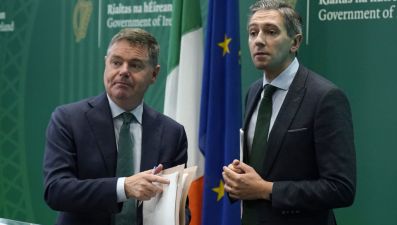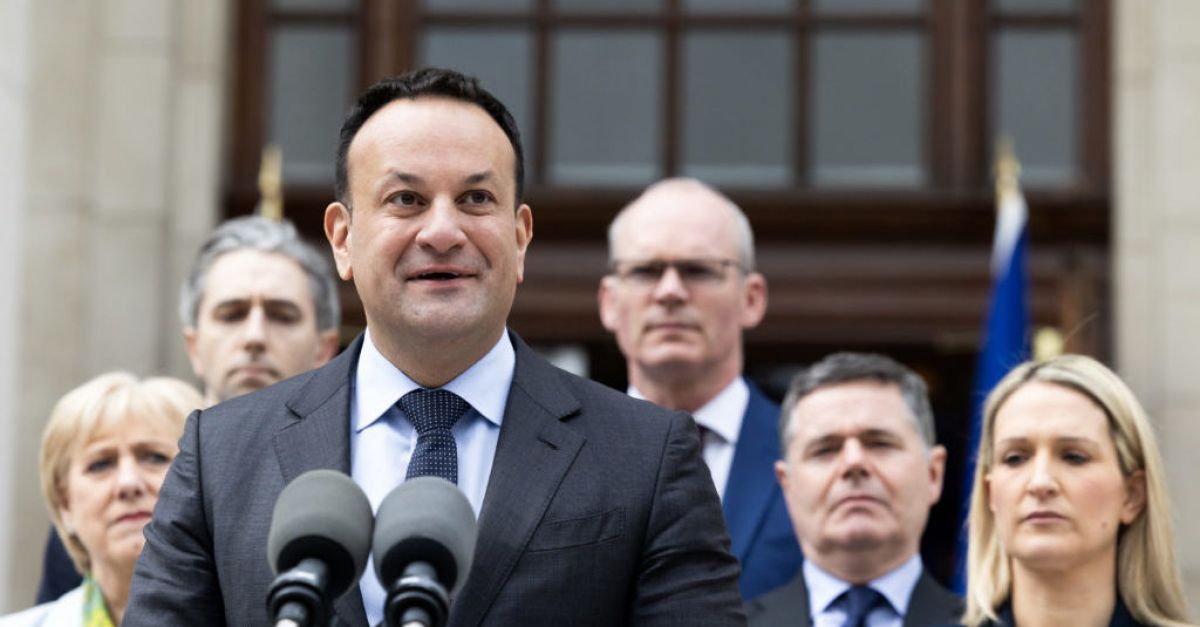Just days after drawing international attention with his St Patrick’s Day speech in Washington DC, Leo Varadkar is back in the headlines of many news organisations around the world following his shock resignation.
Shortly after midday on Wednesday, Mr Varadkar announced he would be stepping down as Taoiseach and Fine Gael leader.
The shock at the announcement has not been confined to these shores, with news organisations around the world giving significant coverage to Mr Varadkar’s announcement.
Starting with out nearest neighbours, the BBC news website has placed Mr Varadkar’s resignation among its top stories.
The corporation’s Northern Ireland political correspondent, Gareth Gordon, notes that while Mr Varadkar’s popularity among unionists may have been limited, “perhaps not surprisingly his relations with Sinn Féin were, if anything, worse, after all, they were direct competitors in the Republic”.
Gordon adds: “To the end he remained one of [Sinn Féin]’s fiercest critics, constantly rejecting the idea of going into government with the party. From now on, that will be an issue for someone else.”
Separately, the BBC puts Mr Varadkar’s resignation in the context of three upcoming elections – local, general, and European – and the recent ‘no’ results in the family and care referendums.
“It seems to be challenges in the near future which have influenced Mr Varadkar’s decision to step down,” the BBC suggests.
Speculation
Over at The Guardian, meanwhile, Lisa O’Carroll suggests Mr Varadkar’s resignation “will inevitably lead to speculation that he has his eye on an EU job”.
Proving that hindsight is indeed 20/20, Sky News has an analysis piece on the story, bearing the headline: ”Phoning it in’: Some signs Leo Varadkar planned to step down after black eye for government’.
“As bombshells go, they managed to keep this one under the radar,” writes Stephen Murphy.
As far as the warning signs of Mr Varadkar’s departure, he points to the referendum results and the decisions of current TDs not to run in the next election, claiming this will “always generate leadership speculation”.
On his recent St Patrick’s trip to the US, Murphy adds that Mr Varadkar was described as “phoning it in” during his media duties, and “dodged the usual round of sit-down interviews with broadcasters”.
But ultimately, it all comes back to the polls, with Murphy offering the final say to Mr Varadkar’s most recent approval rating of 41 per cent.
Leo Varadkar and US president Joe Biden during the St Patrick’s Day Reception and Shamrock Ceremony in the White House on Sunday. Photo: PA Images
In the US, The Washington Post describes Mr Varadkar as “one of the most outspoken supporters of the Palestinians among European leaders”, unsurprising given the contents of his speech at the White House on Sunday.

Ireland
Poisoned chalice or golden opportunity? Candidates…
The outlet adds that he “leaves behind a record as one of Europe’s most progressive leaders”.
CNN also reports the resignation in the context of Mr Varadkar’s “headline-making” trip stateside, “which saw him challenge president Joe Biden over the US response to the war in Gaza”.
Despite highlighting “several controversies at home”, including the lost referendums, soaring immigration and the housing crisis, CNN reports Mr Varadkar “will likely be remembered for his efforts to liberalise Ireland”.
And finally, in the land down under, News.com.au credits the “pugnacious and sometimes controversial speaker in parliament” with leading Ireland’s Covid response and helping to prevent a hard border with the North during Brexit negotiations.

